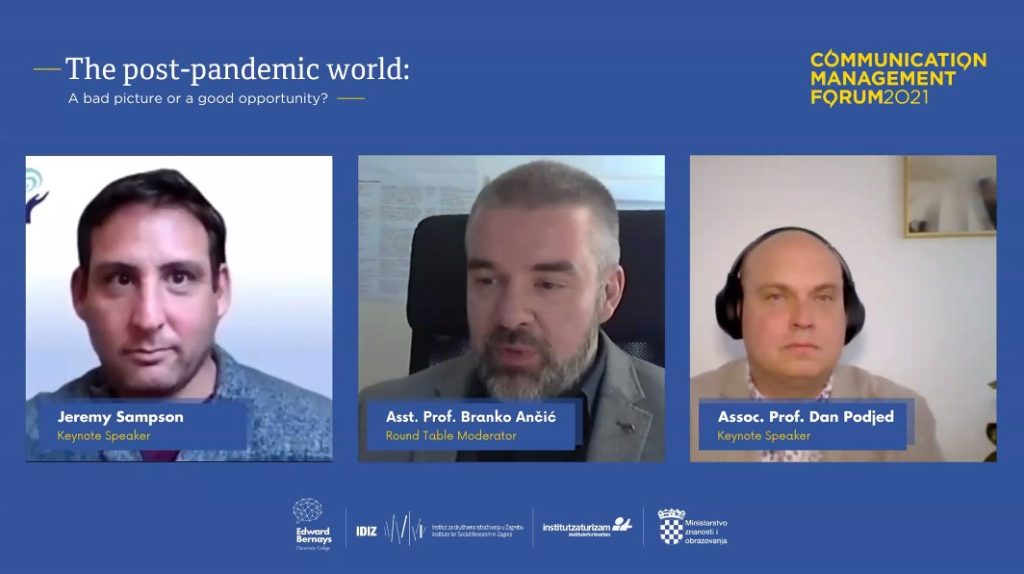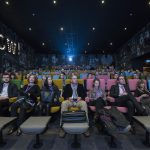The Communication Management Forum (CMF) was held online and was attended by scientists and experts from several countries, including Spain, Turkey, the United Kingdom, Russia, and India. The scientific event proved to be an excellent opportunity for a multidisciplinary discussion necessary about a crisis like pandemics. The conference opened numerous topics in sociology, communication, economics, and tourism, and gathered scientists and experts offered their views on what awaits us once the pandemic is over.
A key issue discussed at the CMF was what awaits us after the pandemic. The participants at the virtual roundtable “Post-pandemic world: a bad picture or good opportunity?” came to a common conclusion that adaptation was inevitable and that the change of business and social paradigm is something else we need to work on. Therefore, the pandemic and the post-pandemic world are equally seen as a good opportunity for all segments of private and business life.
“The situation caused by the pandemic was a threat to humanity. We are stuck in our own homes, and everything very quickly shifted from the real world to online. The way we live now is our present and near future, we have to accept that, but we don’t have to come to terms with it. We should try to lead a life as normal as possible. Still, the big question remains, how we will recover as a society in the anthropological sense?” said Slovenian anthropologist Dan Podjed.
The pandemic flooded the media with negative headlines, followed by a bit of encouraging news when the first vaccine appeared. Still, with a new wave of pandemics increasing, we returned to a negative perspective. Nevertheless, some sectors and segments of life have experienced tectonic changes, which will significantly affect the recovery and development perspective.
“Before the pandemic, tourism was mass, and it was focused on the number of as many guest arrivals possible in destinations around the world. This has completely changed the concept of tourism functioning. Stakeholders in tourism will have to accept the new reality and focus on the quality offered to attract tourists to their destinations, who will return in the future,” said Jeremy Sampson, CEO of Travel, a leading NGO in the travel and tourism sector.
Sociologist Branko Ančić from the Institute for Social Research believes that crises like this increase the problems we have had as a society before.
“The pandemic has opened up many problems. On the one hand, we see an increase in hate speech in relation to different social groups, and on the other, we are witnessing immense togetherness. To deal with everything that this crisis has brought us, we need more responsible behavior of everyone in society,” said Ančić, one of the co-chairs of the CMF Committee.
The Communication Management Forum 2021 was organized by Edward Bernays University College, the Institute of Tourism, and the Institute for Social Research in Zagreb. The two-day conference offered answers to questions about developing business and private life after the end of the pandemic. Scientists and experts agreed that the crisis had created many backs, but that adjustment has been key. Many agreed that the pandemic indicated that we were facing crises and challenges relevant in the next few years.
In four editions, the CMF has gathered more than 750 scientists and experts. The conference has also contributed to the conclusions from the communication and tourism aspect for many years. As Damir Jugo, Dean of Edward Bernays University College points out, this year’s edition has been the most scientifically relevant so far.
To read more news about lifestyle in Croatia, follow TCN’s dedicated page.









